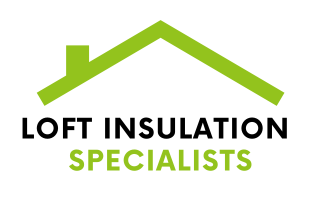Loft insulation is best known for its ability to keep homes at comfortable temperatures all year round and to provide a reduction in energy bills. However, many homeowners are unaware of the significant range of environmental benefits that loft insulation also offers. Loft insulation plays a crucial role in creating a greener planet by reducing your carbon footprint, conserving energy, and promoting sustainability – making it an ideal choice for eco conscious homeowners. In this blog, we will explore the environmental advantages of loft insulation and discuss how sustainable insulation materials can further reduce your environmental impact.
How Loft Insulation Helps to Protect the Environment
Many homeowners don’t realise that by adding loft insulation, they are actively helping to protect the environment and support a greener planet. From significantly reducing your carbon footprint to lowering the need for energy intensive heating and cooling systems, loft insulation plays a vital role in conserving resources and promoting sustainability. Below, we explore some key ways that loft insulation helps to protect the environment.
Reduces Carbon Footprint
Loft insulation plays a key role in reducing your carbon footprint by decreasing the amount of energy required for heating and cooling a home. It prevents heat from escaping during the winter and blocks it from entering during the summer, helping to maintain a consistent and comfortable indoor temperature. This reduces the need for constant heating in cold weather and air conditioning in hot weather, leading to lower energy consumption.
As a result, the decreased reliance on energy intensive heating and cooling systems lowers the amount of fuel consumed and reduces carbon emissions. This helps reduce the effects of climate change by cutting down the carbon dioxide released into the atmosphere.
Lowers Greenhouse Gas Emissions
It also helps lower greenhouse gas emissions by improving the energy efficiency of a home. When you install insulation in a loft, it reduces the amount of heating and cooling needed, directly decreasing the demand for fossil fuels. With less reliance on heating and cooling systems, homeowners use less electricity and gas, which are typically generated from fossil fuels.
As a result, less energy consumption leads to fewer greenhouse gases being released from power plants. By decreasing reliance on these energy sources, loft insulation plays a key role in lowering harmful emissions, making it an effective strategy for homeowners who want to reduce their carbon footprint and contribute to cleaner air.
Minimises the Need for Non Renewable Energy Sources
Loft insulation reduces the demand for energy, which in turn minimises the need for non-renewable energy sources like natural gas, coal, and oil, typically used to generate electricity or fuel heating systems. With less energy required, reliance on these finite and polluting resources is significantly reduced.
These energy sources are finite, as they take millions of years to form and are being consumed much faster than they can be replenished, leading to their eventual depletion. They are also polluting because their combustion releases harmful greenhouse gases, like carbon dioxide, which contribute to climate change. By reducing reliance on these sources, we support the transition to more sustainable and renewable energy alternatives.
Encouraging a More Environmentally Conscious Approach
As well as helping to lower your carbon footprint, reduce greenhouse gas emissions, and minimise the need for non renewable energy sources, loft insulation can also encourage a more eco friendly approach for homeowners. Adding loft insulation often sparks a greater awareness of someone’s environmental impact. When people see the positive effects on energy efficiency and reduced bills, it motivates them to consider their broader environmental footprint and adopt more sustainable practices.
This heightened awareness can lead to more mindful decisions, such as reducing heating and cooling usage. It may also encourage the use of energy efficient appliances or the selection of more eco friendly products. Loft insulation sets the foundation for a greener lifestyle, motivating individuals to take further steps towards sustainability by embracing energy saving habits and prioritising environmentally friendly choices throughout their homes.
How Sustainable Insulation Materials Further Reduce your Environmental Impact
Another way to further reduce your environmental impact with insulation is by choosing a sustainable, recycled material. This choice not only promotes energy efficiency but also supports eco-friendly practices. Materials like recycled glass mineral wool or cellulose insulation are made from renewable or repurposed resources, reducing the need for new raw materials. At Loft Insulation Specialists, we use recycled glass mineral wool for our insulation, which is made of up to 84% recycled glass.
This helps conserve natural resources and lowers reliance on non renewable energy sources.
These materials also have a positive effect on the planet by diverting waste from landfills, preventing harmful gases like methane from being released as the waste decomposes. By opting for recycled insulation, helps reduce the demand for new raw materials, lower the environmental impact of extraction, and ensure your home remains energy efficient while minimising your carbon footprint.
High Quality Loft Insulation
We are leading loft insulation specialists with over 30 years of experience providing a comprehensive range of loft services, including high quality loft insulation. We cater to both domestic and commercial properties, with coverage in areas such as Hampshire, parts of West Sussex, Dorset, and the Midlands. We work closely with our customers, from initial consultation and installation to aftercare, ensuring a professional and efficient service on all projects we undertake. We also pride ourselves on our transparent pricing structure, offering free quotes with no hidden fees or charges. Interested in learning more or receiving a free quote? Contact us today by filling out the online contact form, calling 03335 330029, or emailing info@loftfoam.co.uk.
